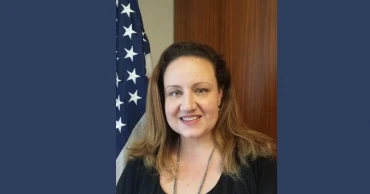peace
Despite ceasefire Israeli airstrikes on Lebanon continue
On Thursday, Israel launched an airstrike on southern Lebanon, marking the first such attack since a ceasefire with Hezbollah was declared earlier this week. The Israeli military stated the strike targeted a rocket storage site linked to Hezbollah, accusing the group of violating the truce.
Lebanese authorities reported sporadic incidents of Israeli shelling and gunfire, which injured two people attempting to return to southern Lebanon. While Lebanese media identified the injured as civilians, the Israeli military described them as suspects breaching the ceasefire. Despite these skirmishes, the truce largely held as Lebanese forces began deploying in areas long dominated by Hezbollah.
Read: Israel and Lebanon's Hezbollah start a ceasefire after nearly 14 months of fighting
Efforts are underway to facilitate the return of displaced residents. Over 1.2 million people were forced to flee their homes during Lebanon's deadliest conflict in decades. However, restrictions remain in place, with both Israeli and Lebanese authorities cautioning civilians against entering border zones still under military control.
Israeli forces reported opening fire on "several suspects" entering restricted areas in southern Lebanon, though specifics were not disclosed. Lebanese state media reported two civilians wounded in the border village of Markaba amid ongoing Israeli tank fire in nearby villages, which caused no casualties.
Adding to the tension, the Lebanese military accused Israel of multiple ceasefire breaches, citing airstrikes and surveillance operations. An Israeli military spokesperson announced a curfew for Lebanese residents south of the Litani River, enforcing strict movement restrictions from Thursday evening to Friday morning.
Read: Displaced people return to south Lebanon as ceasefire appears to hold
The fragile truce, brokered by the U.S. and France, mandates Hezbollah’s withdrawal north of the Litani River and a gradual Israeli pullback, with Lebanese troops and UN peacekeepers set to patrol a buffer zone. Lebanese military officials are clearing unexploded ordnance and debris to pave the way for displaced families to return.
Drone footage revealed extensive destruction in towns like Qana, which has endured repeated devastation in past conflicts with Israel. Residents returning to sift through the rubble expressed a mix of grief and resilience. “They’re determined to destroy us,” said Aref AbouKhalil, a local taxi driver. “But we’ll build it again.”
Israel’s military chief, Lt. Gen. Herzl Halevi, emphasized that any violations of the ceasefire would be met with force. He reaffirmed Israel’s commitment to the agreement while urging caution for displaced Israelis considering returning to their northern border communities.
Though the day saw reduced violence compared to recent months, the situation remains tense. The ongoing war in Gaza, which triggered this conflict, continues unabated, with no resolution in sight.
Source: With inputs from agencies
1 year ago
Israel expands its bombardment in Lebanon as thousands flee widening war
Powerful new explosions rocked Beirut's southern suburbs late Saturday as Israel expanded its bombardment in Lebanon, also striking a Palestinian refugee camp deep in the north for the first time as it targeted both Hezbollah and Hamas fighters.
Thousands of people in Lebanon, including Palestinian refugees, continued to flee the widening conflict in the region, while rallies were held around the world marking the approaching anniversary of the start of the war in Gaza.
The strong explosions began near midnight and continued into Sunday after Israel's military urged residents to evacuate areas in Dahiyeh, the predominantly Shiite collection of suburbs on Beirut’s southern edge. AP video showed the blasts illuminating the densely populated southern suburbs, where Hezbollah has a strong presence. They followed a day of sporadic strikes and the nearly continuous buzz of reconnaissance drones.
Israel's military confirmed it was striking targets near Beirut and said about 30 projectiles had crossed from Lebanon into Israeli territory, with some intercepted.
The strikes reportedly targeted a building near a road leading to Lebanon’s only international airport, and another building formerly used by the Hezbollah-run broadcaster Al-Manar. Social media reports claimed that one of the strikes hit an oxygen tank storage facility, but this was later denied by the owner of the company Khaled Kaddouha.
Shortly thereafter, Hezbollah claimed in a statement that it successfully targeted a group of Israeli soldiers near the Manara settlement in northern Israel “with a large rocket salvo, hitting them accurately.”
On Saturday, Israel's attack on the northern Beddawi camp killed an official with Hamas’ military wing along with his wife and two young daughters, the Palestinian militant group said. Hamas later said another military wing member was killed in Israeli strikes in Lebanon’s eastern Bekaa Valley. The aftermath showed smashed buildings, scattered bricks and stairways to nowhere.
Israel has killed several Hamas officials in Lebanon since the Israel-Hamas war began , in addition to most of the top leadership of the Lebanon-based Hezbollah as fighting has sharply escalated.
At least 1,400 Lebanese, including civilians, medics and Hezbollah fighters, have been killed and 1.2 million driven from their homes in less than two weeks. Israel says it aims to drive the militant group away from shared borders so displaced Israelis can return to their homes.
Iranian-backed Hezbollah, the strongest armed force in Lebanon, began firing rockets into Israel almost immediately after Hamas’ Oct. 7 attack, calling it a show of support for the Palestinians. Hezbollah and Israel's military have traded fire almost daily.
Read: Israeli airstrike cuts major highway linking Lebanon with Syria
Last week, Israel launched what it called a limited ground operation into southern Lebanon after a series of attacks killed longtime Hezbollah leader Hassan Nasrallah and others. The fighting is the worst since Israel and Hezbollah fought a brief war in 2006. Nine Israeli soldiers have been killed in the ground clashes that Israel says have killed 440 Hezbollah fighters.
Iran’s foreign minister, Abbas Araghchi, told reporters in Damascus that “we are trying to reach a cease-fire in Gaza and in Lebanon.” The minister said the unnamed countries putting forward initiatives include regional states and some outside the Middle East.
Araghchi spoke a day after the supreme leader of Iran praised its recent missile strikes on Israel and said it was ready to do it again if necessary.
On Saturday evening, Israeli Prime Minister Benjamin Netanyahu said “Israel has the duty and the right to defend itself and respond to these attacks, and it will do so.” On Lebanon, he said ”we are not done yet."
Fleeing Lebanon on foot
Israel’s military earlier Saturday said about 90 projectiles were fired from Lebanon into Israeli territory. Most were intercepted, but several fell in the northern Arab town of Deir al-Asad, where police said three people were lightly injured.
At least six people in Lebanon were killed in more than a dozen Israeli airstrikes overnight and into Saturday, according to the Lebanese state-run National News Agency.
Nearly 375,000 people have fled from Lebanon into Syria in less than two weeks, according to a Lebanese government committee.
Associated Press journalists saw hundreds continuing to cross the Masnaa Border Crossing on foot, crunching over the rubble after Israeli airstrikes left huge craters in the road leading to it on Thursday. Much of Hezbollah’s weaponry is believed to come from Iran through Syria.
“We were on the road for two days,” said Issa Hilal, one of many Syrian refugees in Lebanon who are now heading back. “The roads were very crowded … it was very difficult. We almost died getting here." Some children whimpered or cried.
Read more: An Israeli airstrike cuts a major highway linking Lebanon with Syria
Other displaced families now shelter alongside Beirut’s famous seaside Corniche, their wind-flapped tents just steps from luxury homes. “We don’t care if we die, but we don’t want to die at the hands of Netanyahu,” said Om Ali Mcheik.
The Israeli military said special forces were carrying out ground raids against Hezbollah infrastructure in southern Lebanon. It said troops dismantled tunnel shafts that Hezbollah used to approach the Israeli border.
More evacuation orders in Gaza
Almost 42,000 Palestinians have been killed in Gaza during the war, according to the Health Ministry there, which does not differentiate between civilian and militant deaths. Almost 90% of Gaza’s residents are displaced, amid widespread destruction.
Palestinian medical officials said Israeli strikes in northern and central Gaza on Saturday killed at least nine people. One in the northern town of Beit Hanoun killed at least five, including two children, according to Gaza's Health Ministry. Another hit a house in the Nuseirat refugee camp, killing at least four, Awda hospital said.
Israel's military did not have any immediate comment but has long accused Hamas of operating from within civilian areas.
An Israeli airstrike killed two children in Gaza City’s Zaytoun neighborhood, according to the civil defense first responders’ group that operates under the Hamas-run government.
Read more: Israeli strike in Beirut kills 9 as troops battle Hezbollah in southern Lebanon
Israel's military warned Palestinians to evacuate along the strategic Netzarim corridor in central Gaza that was at the heart of obstacles to a cease-fire deal. The military told people in parts of the Nuseirat and Bureij refugee camps to evacuate to Muwasi, a coastal area it has designated a humanitarian zone.
It’s unclear how many Palestinians are in those areas. Israeli forces have often returned to areas in Gaza to target Hamas fighters as they regroup.
1 year ago
Contributing to peace in India’s northeast: PM Hasina highlights efforts to halt arms smuggling
Prime Minister Sheikh Hasina today (May 25, 2024) said that the Awami League government has taken significant measures to shut down arms smuggling routes through Bangladesh to India, fostering peace in India's northeastern states.
“Since coming to power, the Awami League has closed down the routes used for arms smuggling through Bangladesh,” she stated.
The Prime Minister made these remarks during a program inaugurating various development projects in Old Dhaka, including the construction of a new 10-storey Bangabazar Nagar Wholesale Market. The original market was destroyed by a devastating fire on April 4 last year.
PM Hasina inaugurates construction of new Bangabazar Wholesale Market
The other projects inaugurated include Valiant Freedom Fighter Sheikh Fazlul Haque Moni Sarani (an 8-lane road), Hossain Shaheed Suhrawardy Shishu Udyan, and Nazrul Sarobor.
Prime Minister Hasina emphasized the impact of the Awami League's efforts to curb arms smuggled to various Indian separatist groups, including the United Liberation Front of Assam (ULFA).
“As a result, peace prevails in the seven sister states of India. The Awami League has done this, and it is a significant accomplishment,” she added.
The ULFA is an armed militant organization operating in Assam, seeking to establish an independent sovereign nation for the Assamese people through armed struggle. The Government of India banned ULFA in 1990, citing it as a terrorist organization.
Would have been happy to tame the inflation: PM Hasina
The seven sister states of India are Mizoram, Assam, Manipur, Meghalaya, Tripura, Arunachal Pradesh, and Nagaland.
The inauguration program was presided over by LGRD Minister Md Tazul Islam. Dhaka South City Corporation Mayor Barrister Sheikh Fazle Noor Taposh, local MP AFM Bahauddin Nasim, and LGRD Secretary Muhammad Ibrahim also spoke at the event.
1 year ago
Evil forces are using advanced technology to disrupt peace: PM Hasina
Bangladesh's Prime Minister Sheikh Hasina on Monday (May 29, 2023) said maintaining peace in the world has now become more difficult than in the past as evil forces are using advanced technology against it.
“With the recent development and advancement of technology, new threats of evil forces are increasing,” she said.
The prime minister was addressing a programme marking the International Day of UN Peacekeepers-2023 at Bangabandhu International Conference Centre (BICC).
She said that technology is giving people opportunities in all fields including socioeconomic development.
Read more: PM seeks strong commitment from int'l community for dignified repatriation of Rohingyas
“…but we also see that the evil forces are also using technology creating confusion among the people and is taking away the peace of people’s lives,” she said.
She said that peacekeepers in UN peacekeeping missions have to deal with complex multidimensional situation.
“Hence the need to enrich peacekeeping missions with advanced technology has increased manifold,” she stated.
Hasina mentioned that her government has always prepared Bangladeshi peacekeepers with the latest training to deal with complex situations in the world's most challenging and dangerous regions.
Read more: PM Hasina credits peaceful democratic atmosphere for country's massive progress
“We are ensuring the supply of clothing, other essential items, and modern military equipment compatible with the mission area's environment, weather, and terrain,” she said.
In this connection, she mentioned that the government incorporated added modern mine-resistant and ambush-protected vehicles to the Bangladesh contingents and state-of-the-art technology for peacekeeper communications.
“Incorporating modern technology and training are an ongoing process that we will continue in the future,” she added.
The prime minister reiterated that Bangladesh believes in peace and would do whatever is required for peace.
Read more: PM Hasina credits peaceful democratic atmosphere for country's massive progress
“We believe in peace, not in conflict. Bangladesh always believes in peace and it would do whatever is required to establish peace,” she said.
Hasina said that her government's efforts will continue so that the peacekeepers of Bangladesh can respond to the UN’s call with more confidence.
“I hope Bangladeshi peacekeepers will keep the country's honour and image bright by working with their skills, professionalism, courage, and dedication,” she added.
She said that peacekeepers of the country work tirelessly to prevent conflict, protect civilians, ensure human rights and establish peace.
Read more: PM mourns death of ex-Mohila League leader Taslima
“Because of your sincere work, the people of all those countries have given you unconditional love,” she said.
She mentioned that Local citizens of many countries associated with the Bangladeshi contingent have learned Bengali culture and language from them.
Bangladeshi peacekeepers have set an exemplary example in maintaining world peace and brighten the image of the country, she said.
Currently, 7,436 peacekeepers of Bangladesh are engaged in the UN peacekeeping missions and activities, and the number is about 9.8 percent of the total number of peacekeepers deployed worldwide. This includes 572 Bangladeshi women peacekeepers.
Read more: PM leaves Doha for home ending 3-day visit
“We continue our efforts to increase the number of women peacekeepers,” she said.
The UN secretary-general has requested to send more female peacekeepers, she said.
She said that Bangladesh’s peacekeepers have successfully completed 63 UN missions in 40 countries worldwide.
Currently, Bangladeshi peacekeepers are engaged in 14 UN missions and activities. 20 contingents of the Bangladesh Army, two of the Bangladesh Navy, four of the Bangladesh Air Force, and three of the Bangladesh Police are working in these missions.
Read more: Govt’s continuity needed to ensure sustainable development: Food Minister
The PM said that Bangladesh has deployed a Force Protection Battalion in Abyei of South Sudan, while added a mechanised infantry company as a Quick Reaction Force in Mali, an Explosive Ordnance Disposal Platoon in the Congo, and a Level-2 Hospital Contingent in the Central African Republic.
Besides, she said, deployment of a new Armed Utility Helicopter Unit of the Bangladesh Army, a new Mechanized Infantry Company as the Base Defense Contingent, and an Airfield Support Unit of the Bangladesh Air Force is underway in Mali.
She added that high-ranking officers of the Bangladesh Armed Forces are engaged in several missions as Force Commanders, Deputy Force Commanders, and Sector Commanders.
“Apart from peacekeeping missions, we actively participate and contribute to other international forums,” she said.
Read more: Dhaka, Beijing review Rohingya repatriation effort
“Today, Bangladesh is a responsible and reliable name in international efforts to maintain peace and security,” she added.
At the end of the function, the prime minister virtually talked with the members of Bangladeshi peacekeepers deployed in different countries including South Sudan, Mali, Lebanon, Central African Republic and D R Congo.
2 years ago
Senior US official Fotovat to discuss women, peace, security issues in Bangladesh
Senior official to the US Secretary of State in the office of "Global Women's Issues" Kat Fotovat will begin her four-day Bangladesh visit on January 20.
Fotovat will participate in the 10th Commencement Ceremony of the Asian University for Women (AUW) in Chattogram from January 21 to 22. She will deliver remarks and meet with students and faculties.
On January 23, Fotovat will engage with members of government and civil society in Dhaka to discuss women, peace, and security issues in Bangladesh and the region, according to the office of the Spokesperson at the US Department of State.
She will participate in an inauguration event for the Reducing Child Marriage – Skills Training for Advancing Resources project, a partnership between the US Embassy and the Bangladesh Rural Advancement Committee (BRAC).
This programme will provide vocational training for 14-18-year-old girls and young women – especially those most at risk of a child, early, and forced marriage – from the most climate-vulnerable localities.
Since 2017, the Secretary's Office of Global Women's Issues (S/GWI) has supported scholarships for young women from conflict zones in Asia and the Middle East to attend university at AUW.
With S/GWI support, AUW aims to produce the next generation of women leaders for Asia and the Middle East by providing a high-quality education to women of great potential who would otherwise have few opportunities. Programming includes opportunities for training in leadership, human rights, and organisational and financial management, as well as practical internship experiences.
Recently, through the Gender Equity and Equality Action Fund (GEEA) Fund, S/GWI and the Department of State's Bureau of Democracy, Human Rights, and Labor have provided additional resources for an AUW scholarship programme for 104 young Afghan women who otherwise would not be able to pursue higher education due to the Taliban's edicts closing secondary schools and universities to women.
In support of the recently launched US Strategy on Global Women's Economic Security, the GEEA fund, managed by the US Agency for International Development’s (USAID) Gender Equality and Women's Empowerment Hub and implemented by USAID and the Department of State, advances economic security for women and girls by increasing their access to resources, services, and leadership opportunities and by addressing the barriers that limit their ability to participate fully in the economy.
Read more: US Official: Free, fair elections “must include a level playing field for all”
Fotovat leads a team of gender experts promoting gender equality efforts including support of women, peace, and security, countering violent extremism, promoting women's economic empowerment, and combating gender-based violence.
She has over 20 years of experience advocating gender and human rights globally, specifically in conflict and post-conflict settings.
Read more: 'Frequent visits' by US officials a good development: Foreign Minister
3 years ago
Momen slams Bangladeshi expat's killing in US, denounces hate crime
Referring to the killing of a Bangladeshi in the US, Foreign Minister AK Abdul Momen on Friday said Bangladesh does not want any hate crime anywhere in the world.
“The Bangladeshi community there (US) are alleging it to be a hate crime,” Momen told reporters about the death of a Bangladeshi expatriate after being shot by the police at Cambridge in Massachusetts of the US on Thursday.
Read more: The recommendations some foreigners at times give seem to be “idiotic”: Momen
Earlier, he inaugurated the three-day "Peace Run Bangladesh" by lighting the peace torch at the Suhrawardy Udyan premises in the capital on Friday.
“We want to stop racism, communal violence and establish peace in the world,” Momen said.
Regarding the Bangladesh visit of US Assistant Secretary of State for South and Central Asian Affairs Donald Lu, Momen said it is very good news that he is coming. "He is like a policymaker in this area. We welcome him.”
Donald Lu became Assistant Secretary of State for the Bureau of South and Central Asian Affairs on September 15, 2021.
“We’ve a very good relationship with the US. We have multifaceted engagements with the US. There will be talks on different issues when he (Donald Lu) comes.”
He also hoped Donald Lu’s visit will help strengthen the good relationship between the two countries.
Read more: Govt to honour expats through National Expatriate Day: Momen
Replying to a question from the reporters on the US sanctions on Rab, the minister said bilateral relation is not determined by a single issue.
“The US is our biggest consumer and our biggest investor. With engagements on many areas, we don't have to worry about just one issue. We both have common values and principles.”
He said the US wants a democratic system and Bangladesh also wants a democratic system.
“The US wants to uphold human rights. We want, too. Three million people of Bangladesh have sacrificed their lives for human rights, justice and democracy,” he added.
“We will talk about many things. It is open. Many issues will be discussed," he said.
3 years ago
Digital Khichuri Challenge held to help Cox's Bazar youth promote peace, diversity
United Nations Development Programme (UNDP) and ActionAid have organised a hackathon to help young people in Cox's Bazar leverage digital means and tools to promote peace, tolerance, and diversity and contribute to SDG targets 4.7 and 16.
The three-day "Digital Khichuri Challenge for Pathway to Peaceful Societies: Catalyzing Youth as Responsible Citizens," was organised under UND's Partnerships for a Tolerant and Inclusive Bangladesh (PTIB) project.
Read: Banglalink SDG hackathon Code for a Cause 3.0 finale held
Almost 100 students from different educational institutions submitted their ideas. The top nine teams attended a boot camp from September 25-27 and presented their ideas on September 27 to the jury.
Team Hurricane and Team Decode the Peace were the winners among the nine teams who will receive mentorship from the UNDP.
3 years ago
Bangladesh a strong advocate for peace nationally, internationally: UNRC
UN Resident Coordinator Gwyn Lewis has said Bangladesh has been a strong advocate for peace nationally and internationally, and the United Nations in Bangladesh is happy to continue to accompany the country in this regard.
In a message marking the International Day of Peace that falls on September 21, the UNRC said the UN in Bangladesh would like to echo the universal and still timely message of the Father of the Nation Bangabandhu Sheikh Mujibur Rahman in his speech in 1974 at the UN General Assembly “Peace is an imperative for the survival of humanity. It represents the deepest aspirations of men and women throughout the world”.
Lewis said promoting peace and preventing violence, both at the international and national level, are at the core of the United Nations’ mandate.
Every year for the past 41 years, she said, the UN has marked the International Day of Peace to uphold the ideal of peace and inspire a day of action for non-violence.
Read: Gwyn Lewis of Ireland appointed UNRC in Bangladesh
As violence makes headlines daily and socio-economic uncertainty undermines cohesion globally, Peace Day 2022 provides an opportunity for all peoples and governments around the world to commit to peace above differences, divides, and borders.
"It invites us to pause and think about what peace means and how it can be built and sustained," Lewis said.
This year’s theme ‘End Racism. Build Peace’ reminds us all that peace means more than silencing the guns.
Building peace entails celebrating differences and leaving no one behind.
It means promoting societies where everyone, regardless of origin, sex, age, religion, opinion, political affiliation, sexual orientation, is treated in an equal manner and given the opportunity to flourish.
"Peace also requires a social contract and a shared vision between governments and their people and within societies," Lewis said.
Sustainable Development Goal 16 ‘Promote just, peace and inclusive societies for sustainable development’ is the glue of Agenda 2030.
"Peace is a prerequisite for sustainable development; and development can help address causes and drivers of conflict and violence in the long run. On the opposite, violence, in all its forms, sets progress towards development back," she said.
"Peace should not be taken for granted. Sustaining peace and violence prevention requires intentional efforts and investments. It is the wise thing to do," she added.
Lewis said sustaining peace is everyone’s business and everyone has a contribution to make.
"What is your contribution to peace in your family, community, country and in the world?"
3 years ago
Bangladesh wants peace, stability everywhere: FM
Foreign Minister Dr AK Abdul Momen on Wednesday said Bangladesh wants to see peace and stability everywhere including in friendly countries like Sri Lanka to keep up the momentum in the country’s economic sector.
“We want stability everywhere. We want our friendly countries get back stability,” he said adding that Bangladesh’s economy largely depends on other countries’ stability.
Also read: No chance of Chinese debt trap: FM
The Foreign Minister made the remarks while talking to a small group of journalists after his meeting with Chinese Ambassador to Bangladesh Li Jiming at the Ministry of Foreign Affairs.
Momen said they want peace and stability everywhere as they live in an interdependent world.
Asked about the situation in Sri Lanka, he said, “Let us see what happens. We’re yet to sit to discuss it.”
He again ruled out the fear of debt trap and said there is no such scope. “We’re prudent (while taking loans and its subsequent management). We don’t borrow that much and when we borrow we do it with much calculation.”
Highlighting Bangladesh’s economic strength backed by stronger export growth and remittance inflow, Dr Momen said, “We are capable of (loans) repayment.”
Also read: Religious harmony prevails in Bangladesh: FM
Chinese Ambassador to Bangladesh Li Jiming also reiterated that there is no debt trap in this country.
The Foreign Minister said they also discussed the Rohingya repatriation issue through a tripartite mechanism.
“We sought their (Chinese) help,” he said, adding that the tripartite process – Bangladesh-Myanmar-China - remains halted for a long time and the repatriation process should start.
3 years ago
India promotes culture of peace as part of commitment to global order, says MEA
India promotes a culture of peace as a part of its commitment to global order, according to the Ministry of External Affairs (MEA).
Culture of Peace is the cornerstone of the global order to build inclusive and tolerant societies. Under the auspices of the United Nations, the promotion of a culture of peace has expanded into a global discourse, according to the statement issued by MEA.
READ: Bangladesh, India to have much to do in next 50 years: Doraiswami
The observation came in the light of the 76th Session of the United Nations General Assembly's Agenda item 16 on Culture of Peace.
India will continue to spread the message of humanity, pluralism and democracy. We reiterate our call to fight negative forces of intolerance, violence and discrimination together, said Ashish Sharma, First Secretary in the statement.
Continuing this rich heritage, India has promoted this culture, inter alia, through tolerance, understanding, respect for all religions and cultures - all this under the overarching umbrella of pluralistic ethos and democratic principles. This is enshrined in our Constitution, the MEA's statement said.
READ: Indian Foreign Secretary Shringla in city
For millennia, India has regularly provided shelter to those persecuted in foreign lands and allowed them to thrive in India and it's is not just about a culture, but a civilization in itself. the statement further added.
4 years ago









.jpg)








